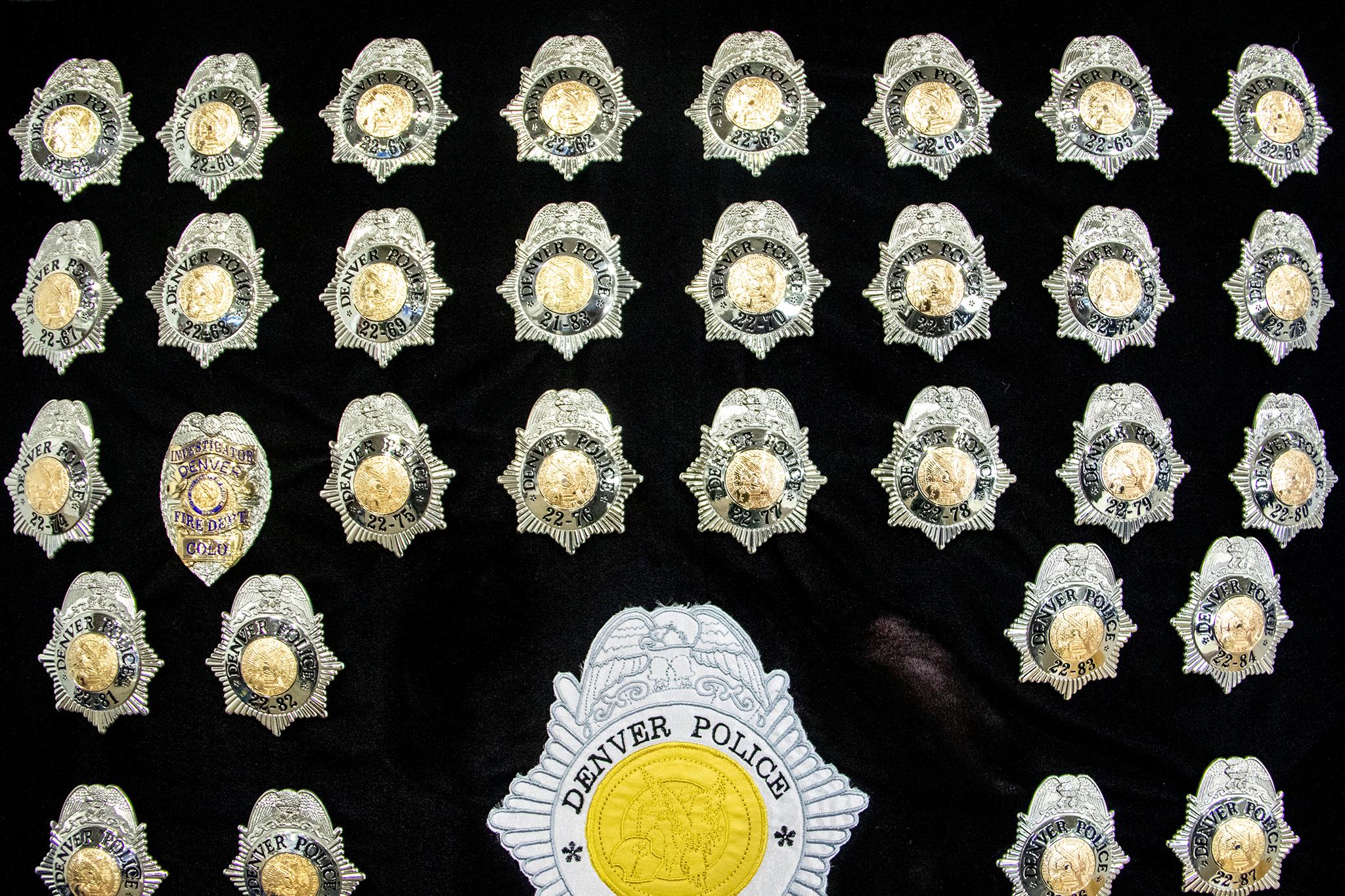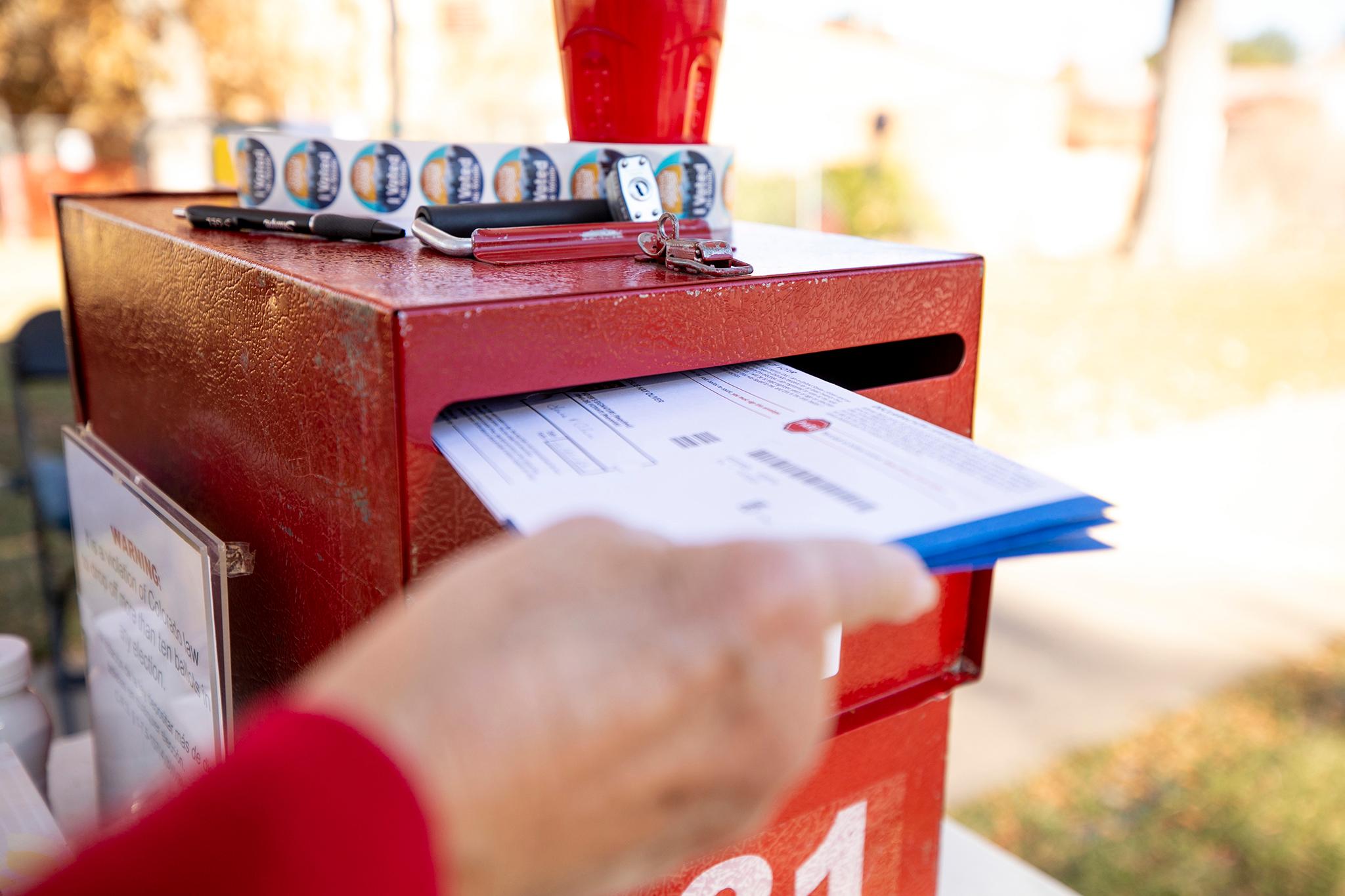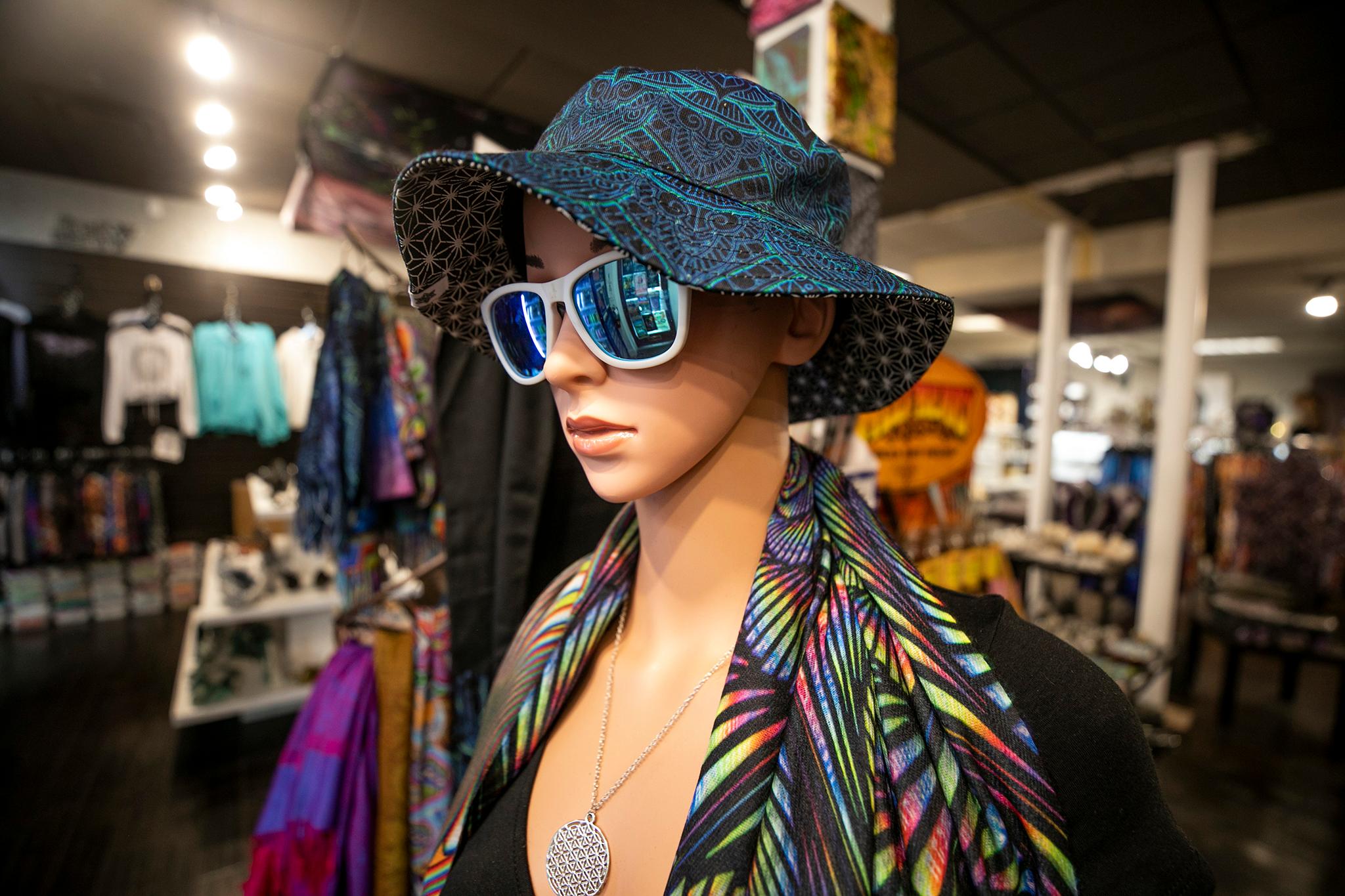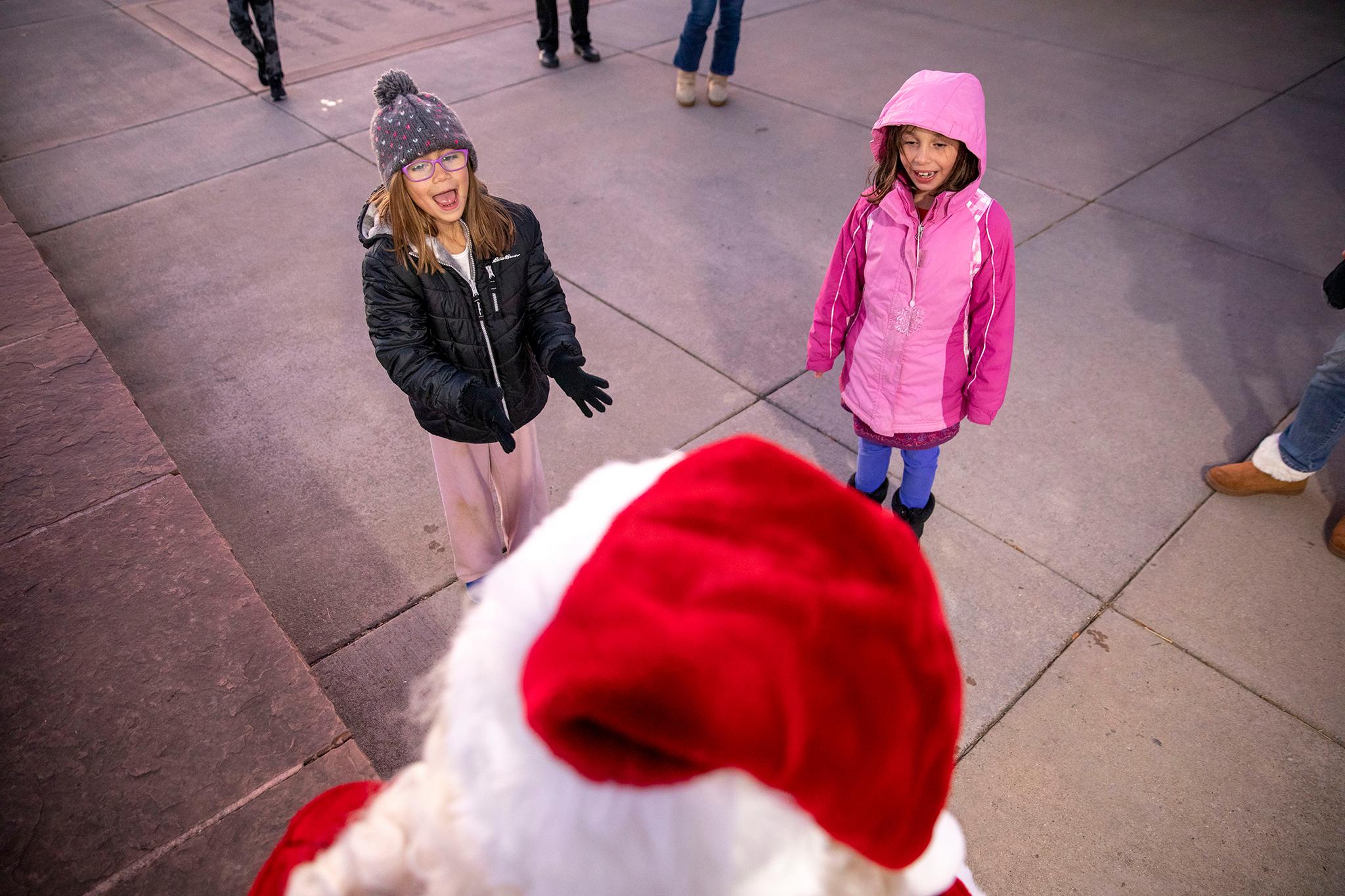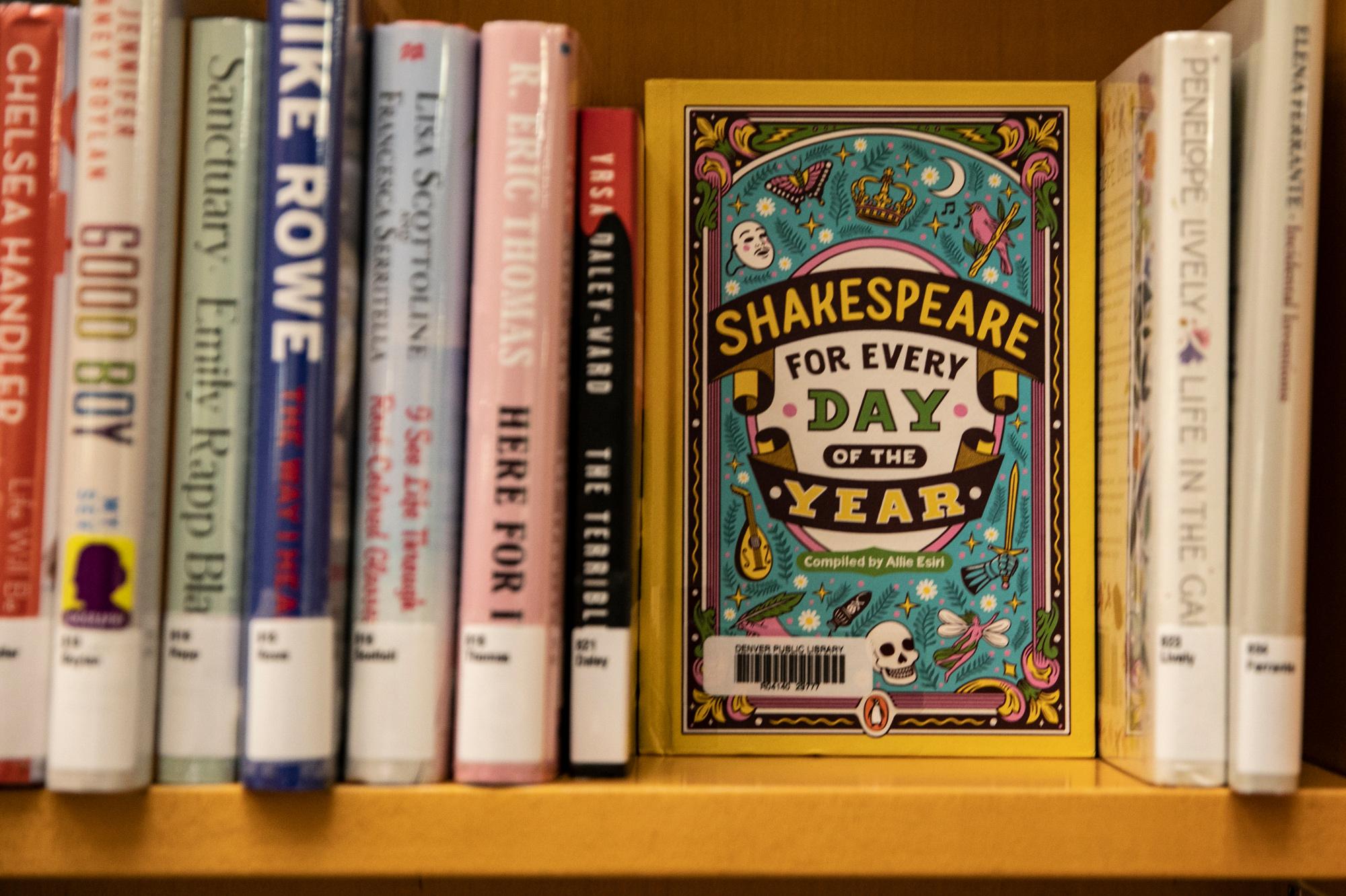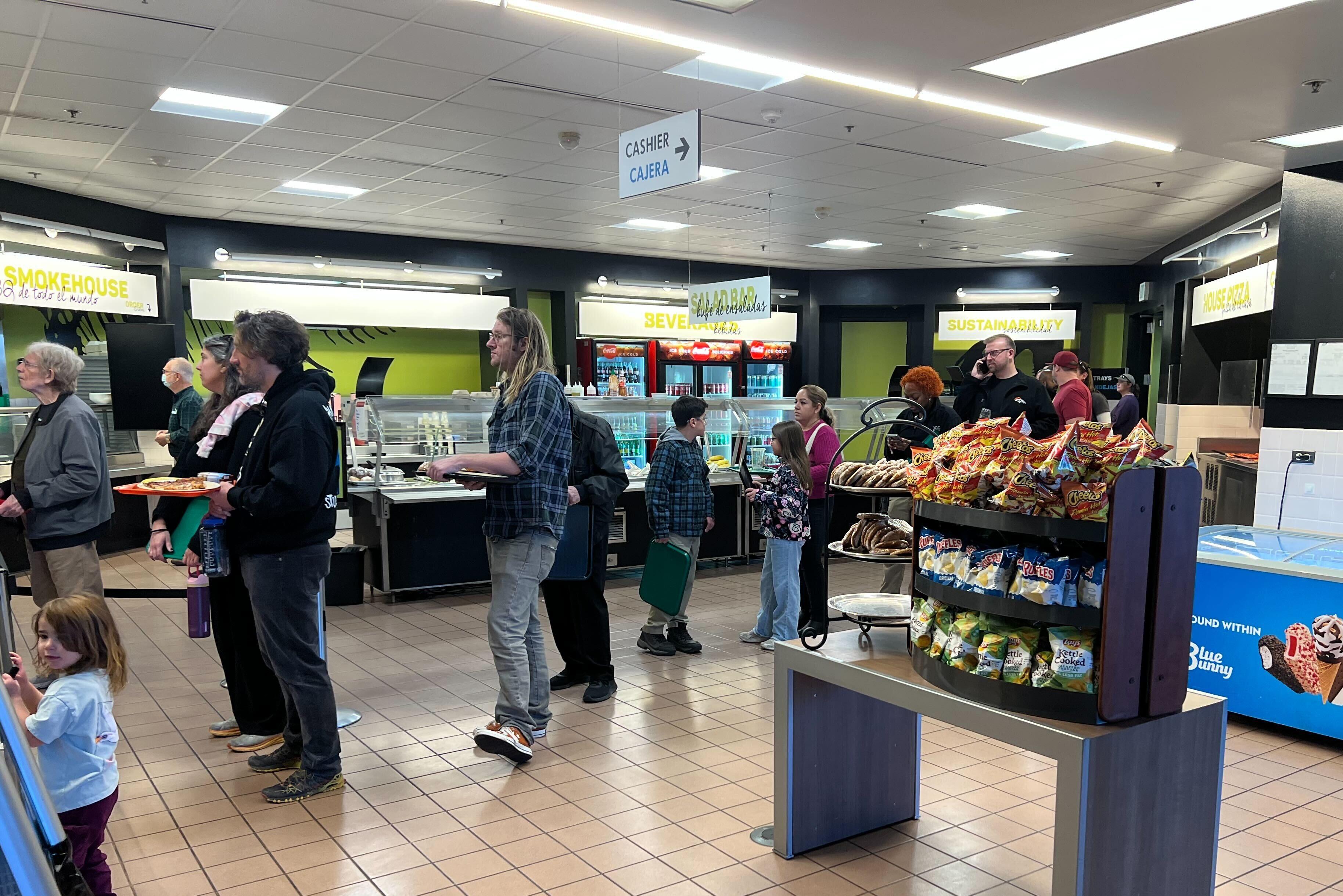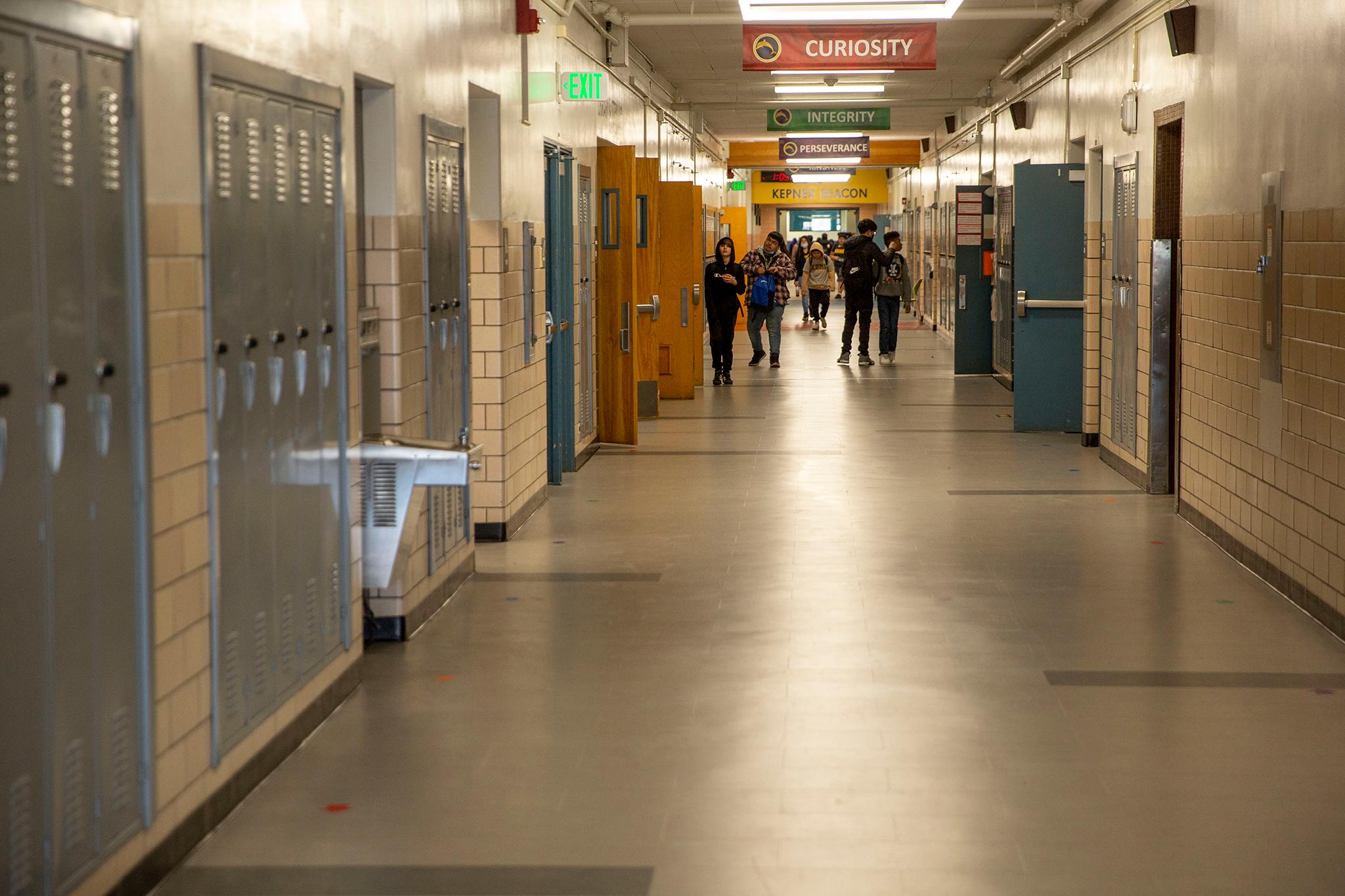Michael Wyatt was 24 when he left Southern California for Mandan, North Dakota. His boyfriend had a new job there, and so did Wyatt: He'd be a police officer in the city of 15,000 people.
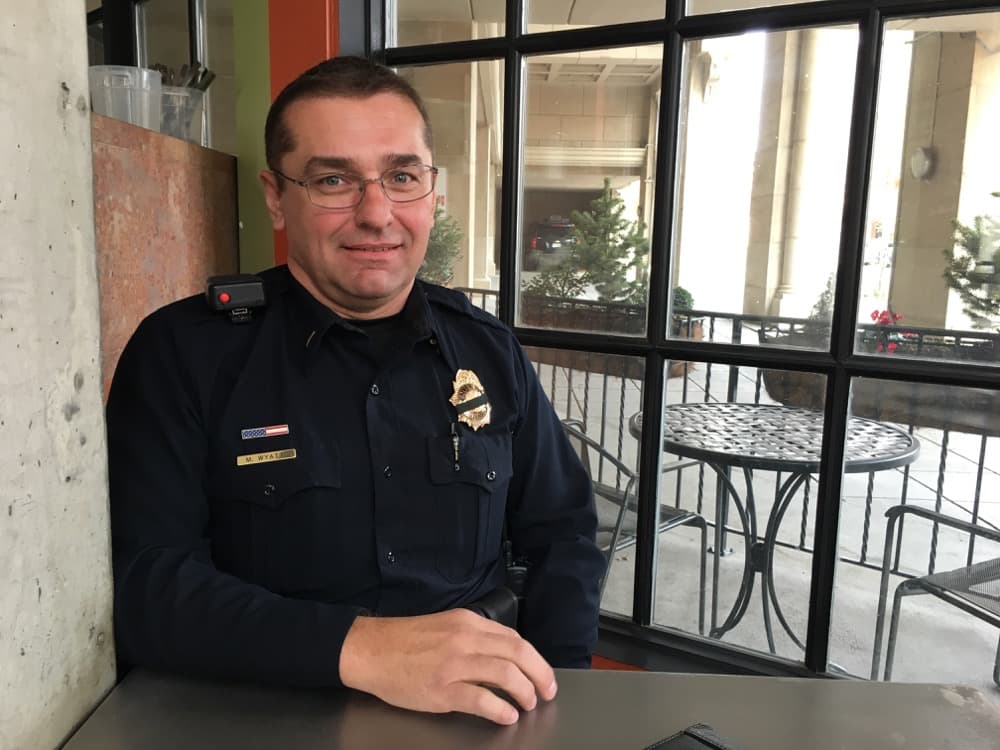
Wyatt knew that he'd have to conceal much of his identity as a gay man to work in law enforcement in a conservative state. He had done it for years already, previously writing letters in code to avoid the military's "Don't Ask, Don't Tell" rule while he was in the U.S. Air Force Reserve.
What he couldn't imagine is that two decades later his secret would be central to the job. Wyatt's a commanding officer in Denver, and he's the department's unofficial (for now) ambassador to LGBTQ people.
Earlier this month, someone spray-painted each side of Amber Timmons' SUV in foot-tall letters with anti-trans slurs, a swastika and the word "die." Lt. Wyatt called her the next day, after the investigators had left.
"He wanted to check in with me and see how the officers did, if I was respected, how I was treated, if I was happy with the way the officers responded," Timmons said this week. She told him she was very pleased with the officers' response -- and she was glad he called.
"I actually love it because there’s been so many years of mistrust with the LGBTQ community and police officers around the nation. It’s nice to have an officer that we know we can trust," she said.
America historically has used police and the law to chase and punish gay people, from the colonial-era death penalty for homosexuality to the infamous raids of gay clubs through the 1960s and continued reports of bias and violence today
"Many times the police take longer to change," Wyatt said. "As society changes, the police also change. Usually it’s just a step behind."
(To reach Wyatt, call 720-913-2903 or email [email protected]. Here's our guide to reporting hate crimes.)
Wyatt spent almost four years in that North Dakota police department.
He never saw other officers mistreating queer people while he worked in Mandan. There were few obvious targets – they lived underground.
"If everyone’s still closeted, you don’t openly see gay people. You don’t see any negativity or prejudice. It’s not there to interact with," he said.
The entire gay community was forced to live second lives; as a cop, he felt closely watched.
"In police work, they do extensive backgrounds. It’s trying to hide a portion of your life. It’s very taxing on you," he said.
Wyatt arrived in Denver in 1996, 20 years ago now, still with the man who's now his husband. The first people he opened up to were his patrol-car partners. Within eight years most of the department knew.
"Now, it's not a big deal that I'm an openly gay officer," said Wyatt, who majored in criminal justice at Bismarck State College. He's an administrative lieutenant in District 6, covering downtown, LoDo, Capitol Hill and Uptown.
A few years ago, Corporal Kevin Malloy asked for someone to take over his unofficial role of liaison to the LGBTQ community. Wyatt agreed.
He did all the official stuff: He co-founded an official LGBT commission within the department. He helped revamp the department's guidelines and protocols for dealing with transgender people. He started working with other first responders. But he also got out and introduced himself.
"I met Lt. Wyatt, I believe, almost two years ago," said Nadine Bridges, director of youth services and the Rainbow Alley youth facility for the GLBT Center of Colorado. They agreed that they wanted the kids in her program to interact with more police officers, to close some of that gap that still persists between authority and any marginalized group.
"It’s not Stonewall. Police aren’t raiding LGBT spaces -- but I think that history, that historical trauma, definitely plays a role in fear," Bridges said. Queer people also might worry that an officer will not understand them, won't know how to talk to them or might not even believe them.
Since then, Wyatt has been a frequent guest.
At first, he took on the mode that he shows in public -- polite and engaged, efficient, a little reserved. They got to know him better over games of Cards Against Humanity, dinners and ice-cream parties, provided by Wyatt and the department. By now, the kids request his presence.
At the same time, he has appeared around the community when he's least expected and most needed, whether it was calling Amber Timmons or showing up at the GLBT Center on the Sunday morning after the Pulse nightclub massacre.
"This is not someone who comes in and asserts himself. It's not a power dynamic," Bridges said.
Sometimes Wyatt brings other officers and new recruits to meet the young people at Rainbow Alley. Sometimes he brings the kids to the police -- like when he threw a barbecue at the department's horse stable. He brought his husband to that one, and it seemed to show one last side of himself.
Officers "have to be very aware and very critical of what’s going on around you. But when he’s allowed to be in spaces that give him an opportunity to be himself, he is himself," Bridges said.
It meant "a lot," particularly, for the kids to see Wyatt with his husband. They saw not just that they could be safe around the police, but that they could be the police.
One last thing:
Wyatt's role with the LGBTQ community is not actually in his job description. It's not listed as his specialty on the police department's website, and I wouldn't have known he existed except that I specifically asked whether anyone takes on this duty in Denver. In fact, the lack of an official position lost Denver points on the Municipal Equality Index.
That might change soon. "We're working on making an unofficial official," Wyatt said. "Instead of word of mouth, this is the person you go to for these issues."
Look for more news on that next year.

